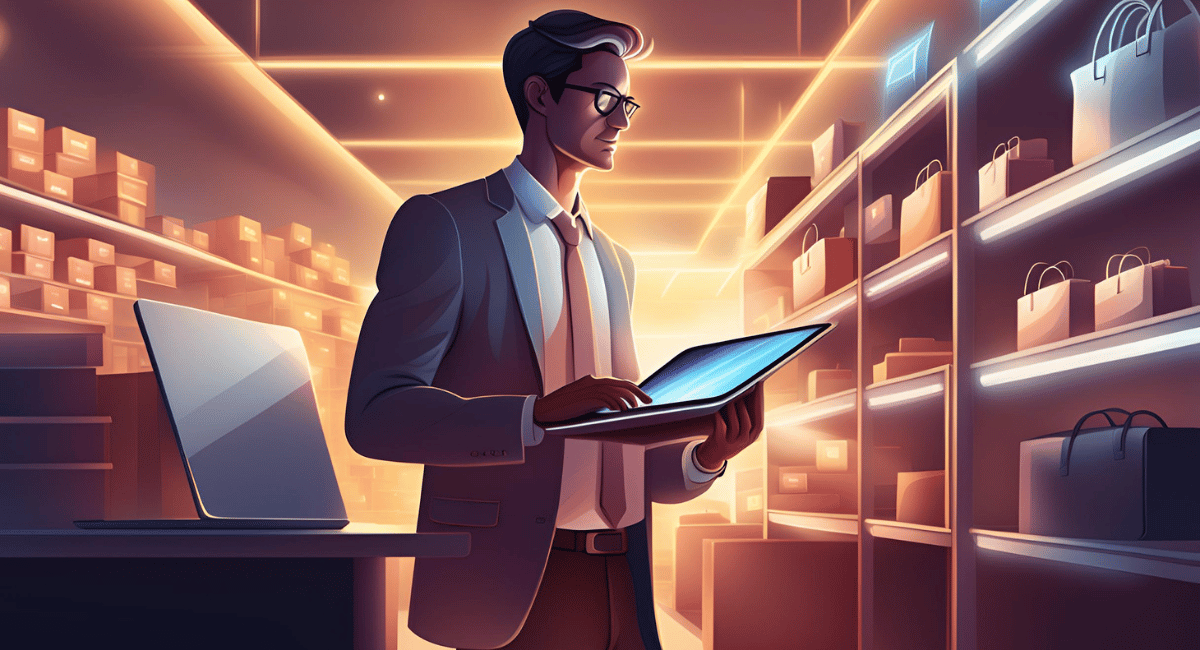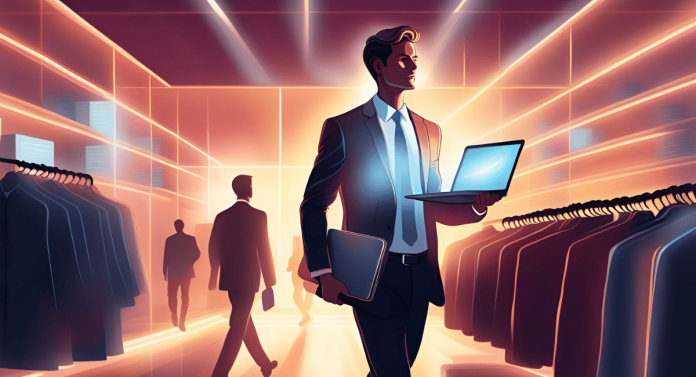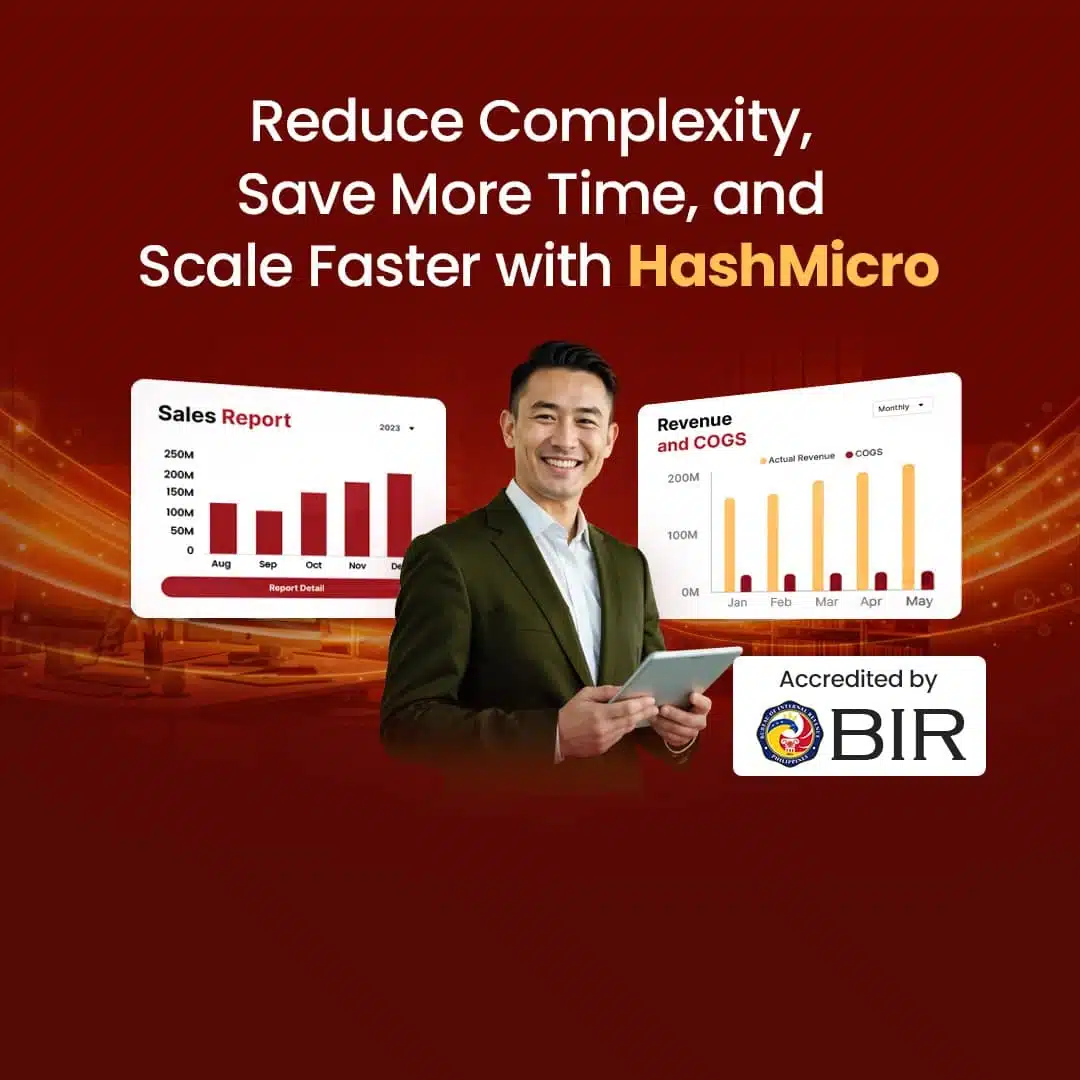As the retail sector in the Philippines grows, businesses encounter increasing complexities in management and operations. Are you struggling with managing multiple store locations, fluctuating inventory, or dynamic pricing strategies? A retail Enterprise Resource Planning (ERP) system may be the solution to unlock efficiency and scalability for your business.
By integrating various business functions, retail ERP systems provide a unified solution that can streamline your operations and enhance decision-making. Read on to discover how ERP can help your retail business!
Key Takeaways
|
Table of Contents

What is Retail ERP?

A Retail ERP system is more than just a software solution; it is the backbone of modern retail operations, specifically designed to meet the fast-paced demands of the industry. This comprehensive platform integrates all essential retail functions—inventory management, customer relationships, point of sale (POS), and more—into a single, streamlined interface.
By harmonizing these core areas, Retail ERP ensures that information flows effortlessly across all levels of the business, enabling real-time decisions and consistent operational efficiency.
The Importance of Retail ERP
For businesses in the Philippines, Retail ERP isn’t just another tool—it’s a game-changer for growth. This system acts like the brain of your operations, gathering data from all over your business. It brings everything together in one place, giving you instant access to vital information. This helps you make quick, accurate decisions that keep you ahead, automating workflow in your retail business.
Retail ERP also breaks down walls between different parts of your company, creating a team that works together smoothly. This is crucial for keeping up with the fast pace of retail today, helping you quickly adjust to new market trends and customer needs while keeping everyone happy.
The Advantages of Implementing Retail ERP Software
Implementing a retail ERP system offers numerous benefits:
- Enhanced POS Systems: This system plays a pivotal role in retail by managing transactions efficiently and reducing human errors through automated data entry. When integrated with modern ERP systems, POS functionalities provide real-time transaction data, enhancing both inventory accuracy and customer service.
- Informed Sales Decisions: ERP systems analyze customer dynamics and sales history, helping businesses optimize their sales strategies—deciding which products to promote based on their performance.
- Superior Inventory Control: Given the fast-moving nature of goods in retail, maintaining optimal stock levels is crucial. ERP systems offer detailed inventory insights and predictive analytics, enabling businesses to adjust stock levels proactively and efficiently, ensuring smooth operations.
- Streamlined Employee Management: Managing a diverse workforce across multiple locations can be daunting. Retail ERP systems simplify this through integrated HR modules that help manage staffing, shifts, and payroll.
- E-Commerce Integration: As e-commerce becomes increasingly significant in the retail landscape, ERP systems that include e-commerce integrations are vital. They ensure that online sales and customer interactions seamlessly connect with brick-and-mortar operations.
- Financial Oversight: ERP systems’ financial management capabilities allow retailers to monitor their finances closely, integrate retail accounting software functions, and provide insights into profitability.
Must-Have Retail ERP Features
To get the most out of a Retail ERP system, several key features must be included. These features streamline operations and enhance a retail business’s overall efficiency.
- Point of Sale (POS) Integration: This feature efficiently manages sales transactions and customer data. It’s crucial for keeping sales operations smooth and tracking customer interactions.
- Inventory Management: This department monitors stock levels and manages the reordering process. This helps ensure that you never run out of popular items and don’t overstock on slow-moving products.
- CRM Tool: This tool enhances your relationship with your customers by keeping track of their preferences and purchase history, leading to improved customer satisfaction.
- Procurement and Supplier Management: This feature optimizes the procurement process and manages relationships with suppliers, making negotiating better terms easier and maintaining a steady supply chain.
- Financial Management: This department streamlines all financial operations, from tracking expenditures to generating accurate financial reports, which is essential for maintaining the business’s financial health.
Including these features in retail software can transform a retail business’s operations, making processes more efficient and improving customer satisfaction and profitability.
How to Choose Retail ERP Software
Choosing the right Retail ERP software in philippines is crucial for optimizing your retail operations. Moreover, this decision should be guided by several key considerations to ensure the system aligns with your business needs.
- Understand Your Needs: Begin by assessing your business’s specific requirements. What challenges are you facing? What processes could be more efficient?
- Evaluate Features: Look for systems that offer the essential features we discussed earlier, like POS integration, inventory management, and CRM tools.
- Consider Scalability: Ensure the ERP system can scale with your business growth. It should be flexible enough to accommodate new stores, products, and changes in business size.
- Check Vendor Reputation: Research the ERP vendor’s reputation. Look for user reviews, case studies, and testimonials to understand their service quality and reliability.
Once you have a shortlist, you may consider HashMicro’s Retail ERP solutions. They offer a comprehensive suite of tools designed specifically for retail operations. With HashMicro, you gain a partner who understands the intricacies of retail and provides continuous support to help you maximize your investment.
HashMicro’s Retail ERP for Better Management

HashMicro’s Retail ERP system is designed to enhance every aspect of the retail management system, offering a suite of features that cater specifically to the needs of the retail industry.
- Price Checker Screen for Supermarket: This tool allows customers to quickly check prices, enhancing their shopping experience in a retail supermarket. It reduces staff queries and boosts operational efficiency by streamlining the price-check process.
- Omni-channel Integration: Manage both physical and online stores seamlessly with this integration. It ensures consistent inventory and pricing, providing a cohesive customer experience across all channels.
- Loyalty Points Management: This feature allows retailers to implement loyalty programs that reward frequent shoppers. Effective loyalty management boosts customer satisfaction and increases retention rates.
- Automated Promotion Management Based on Cart: Multiple promotions are automatically applied during checkout, optimizing the customer experience. This feature boosts sales and customer satisfaction by offering tailored discounts seamlessly.
- Centralized Multi-branch POS: Manage POS systems across multiple locations through one centralized system. This simplifies sales tracking, inventory management, and revenue reporting, ensuring consistency across all branches.
By integrating these features, HashMicro’s Retail ERP offers a robust platform that simplifies complex retail operations. It helps manage businesses efficiently and delivers exceptional customer service, and it also ensures they stay competitive and agile.
Conclusion
Investing in a robust ERP system is a strategic decision for Filipino retailers looking to achieve sustainable growth. These systems centralize data, streamline inventory and process reengineering, and improve decision-making across the board, ultimately fostering collaboration and increasing overall business agility.
Considering implementing an ERP system? Explore HashMicro’s Retail ERP, designed specifically for the retail industry. It offers integrated POS, advanced inventory management, comprehensive CRM capabilities, and much more, all tailored to streamline your retail operations.
Ready to see the difference for yourself? Try HashMicro’s free demo today and discover how our Retail ERP can transform your business operations.
Frequently Asked Questions
-
What is an ERP in retail?
ERP in retail is a software solution that integrates various business processes, such as inventory management, sales, and customer relationships. Streamlining operations, it improves decision-making and enhances efficiency across multiple locations, making retail management smoother and more effective.
-
What is the retail inventory method in ERP?
The retail inventory method in ERP enables businesses to track stock levels, automate reordering, and forecast demand using real-time data. This approach helps retailers manage inventory efficiently, reducing overstock and preventing stockouts, ultimately improving overall operational performance.
-
What is a retail management system?
A retail management system is a software tool designed to oversee and streamline day-to-day retail operations. It manages inventory, sales, customer data, and financials to improve overall business efficiency.





































